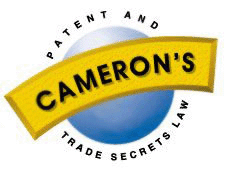
Reading & Bates Construction Co. v.
Gaz InterCite Quebec Inc.
citation(s): (1988) 18 C.P.R. (3d) 180 (F.C.A.) per Stone J.A.
 |
Reading & Bates Construction Co. v.
|
copyright 1997 Donald M. Cameron, Aird & Berlis
"In dealing with a question of obviousness, care must always be taken to guard against dangers inherent in hindsight analysis. The thought underlying the expression that one is "the wiser after the fact" (even as regards inventions) was captured as early as 1667 in these poetic words:
'The invention all admir'd, and each, how he To be the inventer miss'd; so easie it seemed Once found, which yet unfound most would have thought Impossible.'
In patent law, that notion was put in legal terms by Lord Russell of Killowen, in Non-Drip Measure Co. Ltd. v. Stranger's Ltd. et al. (1934), 60 R.P.C. 135 (H.L.) at page 142 where he said: "Nothing is easier than to say, after the event, that the thing was obvious and involved no invention". The same view was recently echoed by my colleague Mr. Justice Hugessen in the Beloit case at page 296."
Return to:
Cameron's IT Law: Home Page; Index
Cameron's Canadian Patent & Trade Secrets Law: Home Page; Index